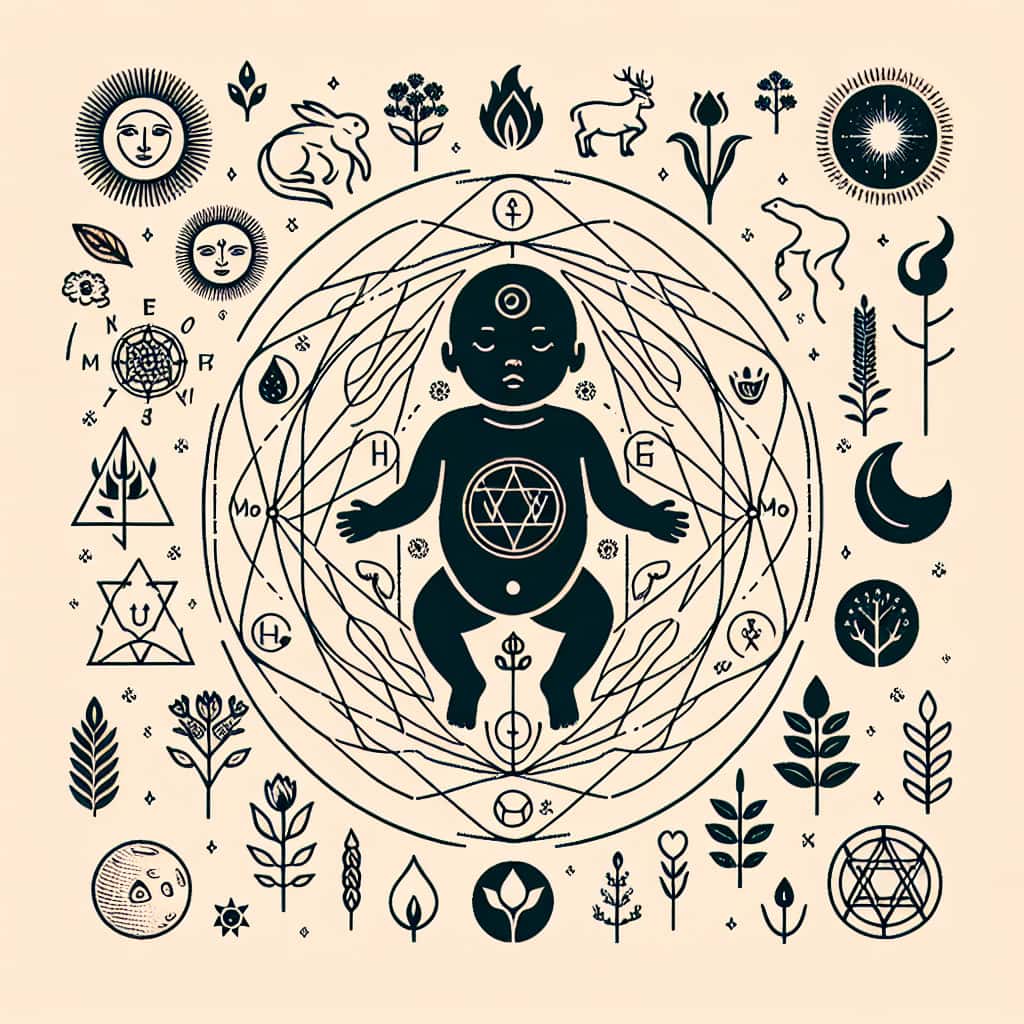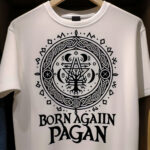Paganism is an ancient spiritual tradition that has been practiced for thousands of years. As the popularity of paganism has grown, so have the number of families interested in raising their children as pagans. But what does it mean to raise a pagan baby? In this article, we will explore the basics of pagan parenting and offer insight into how to raise a pagan baby. We will also discuss some of the common misconceptions and answer questions related to pagan parenting.
A Pagan baby is a newborn who is born into a family which practices Pagan beliefs and rituals. Paganism is an ancient belief system that includes a wide variety of spiritual paths, such as Wicca, Druidry, and Shamanism. Pagan families embrace the diversity of Paganism and its many expressions, and seek to nurture and support their children’s spiritual development. Pagan babies may be welcomed in a variety of ways, depending on the path of their parents.
What is Paganism?
Paganism is an umbrella term that encompasses many different beliefs and spiritual paths. It is an ancient belief system that is rooted in nature worship and the divine feminine. Paganism is based on a deep respect for the Earth, and the belief that all of nature is interconnected. Paganism is a polytheistic faith, meaning that it recognizes the existence of more than one deity. Pagans may honor many gods and goddesses, as well as other spiritual and natural entities, such as elemental spirits.
Paganism is also a diverse faith, as there are many different paths within the greater Pagan umbrella. These paths can differ in how they view the gods and goddesses, their rituals and practices, and their beliefs about the nature of the divine. Some paths may focus on a single god or goddess, while others may honor many. Some paths may be more focused on magic and spellwork, while others may be more focused on connecting with nature and the cycles of the seasons. Whatever path a Pagan family follows, they are likely to welcome a new baby into the world with love and joy.
How are Pagan Babies Welcomed?
Pagan families may welcome a new baby in a variety of ways, depending on their spiritual path. Some families may celebrate the birth with a special ritual or ceremony, while others may simply offer prayers and blessings for the newborn. Some families may choose to perform a naming ceremony for the baby, while others may wait until the baby is a bit older before officially naming them. Pagan families may also honor the baby’s birth with gifts, such as a special necklace or a crystal that has been charged with protective energy.
Pagan families may also honor their baby’s birth with special symbols and charms. These symbols may represent the baby’s connection to the divine, as well as the family’s desire to protect and nurture the child. Many Pagan families will also give their baby a special blessing, which may be spoken aloud or written down and placed near the child. This blessing may include wishes for health, strength, courage, and wisdom, as well as protection from harm.
How do Pagan Parents Raise their Children?
Pagan parents may choose to raise their children in accordance with their own spiritual path. This may include teaching the children about their faith, teaching them about the divine, and teaching them about the importance of respecting and honoring nature. Pagan families may also choose to celebrate the holidays and festivals associated with their faith, as well as participating in rituals and ceremonies with their children. Pagan parents may also encourage their children to explore their own spiritual paths and to seek out their own relationship with the divine.
Pagan children may also be encouraged to explore their creative side and to express themselves through art, music, and writing. Pagan parents may also choose to teach their children about herbalism and natural remedies, as well as how to connect with the natural world. Pagan parents may also encourage their children to be stewards of the Earth, as well as to respect and honor all living things.
Conclusion
Pagan babies are born into families that embrace the diversity of Paganism and its many expressions. Pagan families may welcome their babies in a variety of ways, depending on their spiritual path. Pagan parents may choose to raise their children in accordance with their own spiritual path, teaching them about their faith, as well as encouraging them to explore their own spiritual paths and to seek out their own relationship with the divine. Pagan families may also choose to celebrate the holidays and festivals associated with their faith, as well as participating in rituals and ceremonies with their children.
In conclusion, it is important to remember that a Pagan baby is not a specific type of baby, but rather a baby that is born into a Pagan family and is raised in a Pagan tradition. It is important to note that Paganism is a diverse and open religion that welcomes all people regardless of their background. Pagan parents can provide their children with a spiritual foundation that is rooted in nature and respect for all living things. Furthermore, Pagan families can provide their children with a sense of community and belonging. Ultimately, it is up to the parents to decide how to best raise their children in the Pagan faith, but it is important to remember that Paganism can be an enriching and rewarding experience for both parent and child.





